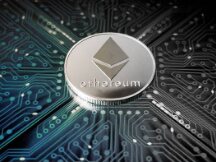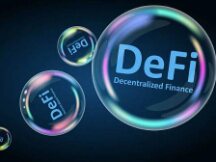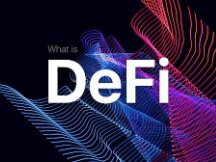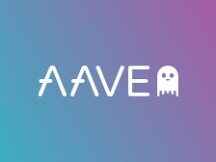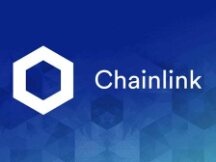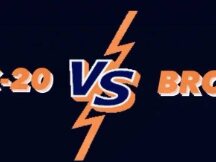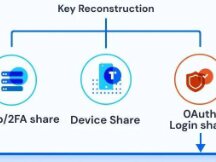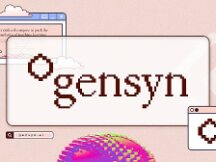2022-DeFi, Web 3, NFT / Gaming and Multi-Channel Perspectives

As 2022 approaches, we need to look at how the blockchain industry has improved over the past year before looking forward to 2022.
Research Assessment is an industry market research company, with its latest "Digital Asset Outlook for 2022" featuring a 160-page report on the market, industry trends, DeFi, blockchain games and other sources to listen to . .
Chain Tea House defines DeFi, NFT / Gaming, Web 3 and more for readers as a macro app for businesses.
1. Challenge
The main investments in 2020 are the funding of all parties to the DeFi application, which will continue in the first half of 2021.
This DeFi app is based on Ethereum and other Standard 1 Amendments. The goal is to achieve a transparent financial process, provide better approval, and provide a mix of different apps. .
For all types of financial services, manufacturers are looking to move to a decentralized process, whether it's business, fulfillment, loans, derivatives, project quotes, and more.

From this year to date, around a third of the cryptocurrency industry has invested directly in DeFi (428 financial projects have been completed), with a total of around $ 1.9 billion. The average and mid-size business for DeFi industry is $ 5.4 million and $ 2.7 million respectively.
Over the past year, concerns about the ability to control uncertainty and investors have turned to the NFT / gaming verticals, resulting in delays in the frequency of the DeFi market in the first half of 2021. .
But despite the downturn, the most popular activity for investors remains DeFi, and people are paying more for investments that may be illegal.
For example, investments in decentralized Stabilitycoin projects rebounded from the end of the third quarter due to SEC expectations of a crackdown on centralized Stabilitycoins such as USDC and Tether and now reliance on them. DeFi ecosystems, etc.
Therefore, algorithmic stability and stability projects were not used in a 1: 1 ratio to dollar rates, which led to the recovery of financial stability projects such as the UXD protocol, the Float and Angle Labs protocol.

2. NFT / set
The growth of NFT application and the rising price of some NFT domains has attracted many investors like DeFi industry.
NFTs can offer content creators new ways to monetize their work, always using social symbols, graphics, articles, or toys. Thus, NFTs can be traded elsewhere, including banknotes, currencies, music, network domains, and luxury fashion.
To date, NFT / Gaming Vertical ranks third in private equity acquisitions, raising nearly $ 5 billion in market capitalization in 406 deals, with an average size of $ 14.9 million and an average size of 270. ten thousand dollars.
Interest in NFTs and blockchain games has increased this year.
In terms of the number of exchanges, it more than doubled from Q1 to Q2, becoming the most popular type of exchange for four consecutive months.
4T NFT / sports industry also surpassed the 3T. About 42% of October and November market share by NFT / gaming companies.

At the start of the year, the vertical was managing digital devices, graphics, personal images (PFP) and NFT product buying, selling and marketing platforms such as Openea. Recently, entrepreneurial interests have shifted to NFT operations, which are expected to deliver larger applications such as advertising, content, and games.
With the expansion of NFT / Gaming, Decentralized Autonomous Organizations (DAOs), social tokens, and organizations have started to gain traction with investors across the industry.

DAOs and social tokens predict monetization mechanisms and how people engage and participate on the internet.
DAO can be anything from a token management and DeFi protocol to a "chat interface" or a Discord channel, or even a group of community businesses (where revenue is generated). members flocking to the new cryptocurrency).
A closer look at the vertical and horizontal lines shows that around 47% of assets this year are related to blockchain activity.
The area of interest is guild play around new games, studios or commercials for NFT games and DAOs. Mainly to improve access and make it easier for newcomers to join the game and earn money.
The potential problem with Play-to-Earn games is that some digital items or assets must be preinstalled and will not include potential players.
Gaming guilds like Yield Guild Games or Avocado Guild use the concept of “guild” or “communities” to eliminate these problems for new players, lend players treasures and generate income. .
The P2E-style game, commonly referred to as "GameFi", quickly gained popularity with the release of Axie Infinity, released by blockchain studio Sky Mavis. The game is gaining popularity in the Philippines and elsewhere, and players can earn money by playing it.
Games using blockchain technology have been around for a long time, but this year marks a turning point in game development. This is because advancements in Level 2 technology and other Layer 1 platforms will provide the requirements for games.
In addition to a variety of role-playing games, there are also a variety of popular businesses, such as the "Parallel" sci-fi card game. In October of this year, the project raised $ 50 million in a $ 500 million investment led by Paradigm.
A special feature provided by blockchain-based card games is that while the card may be too strong, it may be "weak" or "strong". For example, in popular card exchanges such as the "Magic: Assemble" series, the characters and characters of some cards are too strong to participate in the tournament.
Running through 2022, board assembly will be key, which will be a huge undertaking. In 2020, “Magic: The Gathering” reported that the company had revenues of $ 816 million.
Three.Multichain and L1 augmentation
One of the key models in 2021 will be the increased implementation of Layer 1 as an alternative to Ethereum or Layer 2.

It can be seen in past ecosystems that other blockchain networks often did not complete tasks (although it was reported that there were more complete and faster completion blockchains such as Ethereum and Bitcoin ). ), measures and investments are not intended for other purposes. ecosystems. Reserve.
However, investors are still willing to invest in the future prospects of multi-chain, some of these companies are Ethereum Layer 2 and a special purpose blockchain network different from Ethereum.
All DeFi and NFT / Gaming projects this year raised a total of 836 investments, with 33% of plans slated to support multiple blockchains.
Most of these operations, declared "multi-chain", are of the EVM type. This means that it supports Ethereum and the following 2 technologies, as well as other similar processes such as Avalanche, BSC and Fantom.
Despite the growing market and interest around Ethereum in other ways, investing in the Ethereum ecosystem is still important and very rewarding. Over a quarter of DeFi and NFT / Gaming investments in Ethereum. The project is only based on the square.
Compared to DeFi, the NFT / Gaming vertical market is clearly focused on Ethereum, and groups such as social tokens and DAOs developed in this industry are all drawn from the Ethereum ecosystem.
Currently, NFT / Gaming follows the basics of DeFi. Many new projects and innovations were started at Ethereum and then funded by expanding or migrating to networks like BSC and Polygon due to the cohesion of EVMs. It was only then that we started to integrate the work into the Phase 1 ecosystem.
In addition to Ethereum, the Solana ecosystem has attracted the most investors. This blockchain network was launched in April 2020. In July of the same year, the FTX cryptocurrency exchange announced that a Serum decentralized trading project would be built on Solana, which practiced the support.
Additionally, in the second quarter of last year, Solana developer Solana Labs raised $ 314.1 million in private sales from a16z and Polychain Capital. Between DeFi and NFT / Gaming, there are 73 investments based on Solana.
Here is Polkadot with a total of 53 investments. At least 5 investments in this ecosystem are based on other ecosystems such as Avalanche, BSC, Cardano, Cosmos, Flow Blockchain and Polygon.
4.Web 3
Besides DeFi and NFT / Gaming, the most popular wallets are the Web3 subdivisions. Projects in this category include personnel, data management, membership, currency, and all organizations supported by Web3 Storage and blockchain technology.
One of the key principles of Web3 investing is the development of community engagement plans.
A big problem with current relationships is that their developers are often censored and banned due to the nature of their website. Advertising is an important source of income for developers, and if the advertiser does not wish to link to certain content, information and content that could be problematic, inconsistent or dissatisfied with the advertiser will be rejected.
And decentralized social media can change the process of operating on these platforms, becoming decentralized rather than centralized businesses conducting research or customer complaints at all times.
Instead, developers can contact their audience directly through these networks in a friendly manner, rather than through third parties.
The largest of those relationships includes social media platform DeSo (formerly BitClout), which raised $ 200 million from merchants through the token sale, including a16z, Coinbase Ventures and Sequoia.
Other popular social media include RSS3, Solcial, and Torum.
As with the conversation, other streaming support companies, such as the Ethereum-based media streaming platform Livepeer, received $ 20 million in revenue in the third quarter of this year.
On the telecoms side, the Helium blockchain project raised $ 111 million in token sales in partnership with a16z, Alameda Research, Ribbit Capital, 10T Holdings and Multicoin Capital. However, this classification that provides 5G wireless networks is intended to illuminate the future of the Internet.
The interaction and scalability of application and blockchain networks are essential to the success of a Web3 project.
As a result, cross-channel platforms looking to integrate this communication process have also received funding this year, including some like Axelar, LayerZero and deBridge.
XMTP has also raised $ 20 million for a communications protocol that facilitates communication of cryptocurrency wallets.

Scan QR code with WeChat
